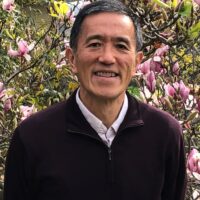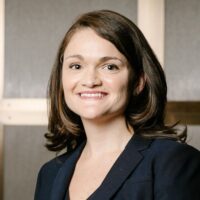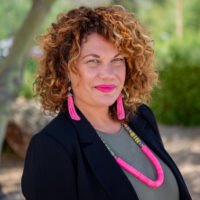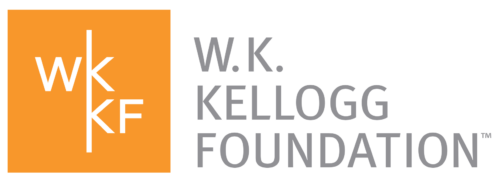
About the 2020 Convening
As the world has changed—from COVID-19 to urgent calls to counteract anti-Black racism and white supremacy—so has our approach to civic engagement. Moments like these have a way of revealing underlying structural inequities; this pandemic and demands for justice are shining a bright light on the brutality of structural racism and class inequality. And as communities of color and low-wage workers bear the brunt of these effects, we see how some leaders are using this as an opportunity to roll back rights and restrict democracy.
Yet, crises have a way of presenting opportunities to do things in ways that were not possible before. The year ahead offers a chance to build a more resilient democracy. We can work toward a society where the most impacted communities have the power to exert greater control over the issues and outcomes that most affect their lives, and where structural reforms can bring about more resilient, inclusive, and equitable democratic outcomes.
The 2020 FCCP Convening occurred during a time of important opportunities and unprecedented threats. There was a hunger, and an opportunity, to challenge those who traditionally hold power, and change the story of who and what is at the center of our politics and our economy. Thank you for joining us online June 22-23 as we brought together funders and community changemakers for two days of learning, networking, and alignment conversations. As we review our work thus far and look toward the remainder of the year and beyond, we:
- Learned about the current state and necessary shifts of the 2020 civic engagement field in Texas and around the country,
- Provided space to share critical efforts from our working groups and special projects, particularly around the census and redistricting, as well as money in politics,
- Continued to prioritize equity and justice as key tenets of what it looks like to build long term power in communities, and
- Had funder-focused conversations that enhanced collaboration for not only the remainder of 2020, but for the years and changes to come.
Houston Registrations Update:
With the safety and wellbeing of our network in mind, we made the difficult decision to cancel the in-person aspect of our annual convening in Houston, Texas. While we did not meet in a physical space, we knew that providing a virtual opportunity for our network to collaborate and share at this critical moment for civic engagement is important to maintain our connections.
Full Convening Agenda
2020 Convening Planning Committee


Ted Wang
Unbound Philanthropy
Ted Wang is the US Program Director at Unbound Philanthropy, a private foundation that seeks to contribute to a vibrant, welcoming society and an immigration system rooted in justice. Read More…
Aaron Merkin
National Education Association
Aaron currently serves as Senior Specialist to the Office of the Executive Director at the National Education Association (NEA). Read More…
Elizabeth Guernsey
Open Society Foundations
Elizabeth Guernsey is a program officer with Open Society-U.S., overseeing grant making related to local progressive governance, with an emphasis on supporting local elected and appointed officials and tackling the state preemption of local democracy. Read More…
Lisa Madry
Episcopal Health Foundation
Lisa Madry currently serves as the Director of Community Engagement at the Episcopal Health Foundation. Read More…
Nick Chedli Carter
2020 Vision Ventures & the Resilient Democracy Fund
Nick is the Managing Director of 2020 Vision Ventures and the Resilient Democracy Fund, a civic engagement initiative dedicated to a fair, inclusive, and resilient democracy. Read More…
Nicole Boucher
Way to Win
Nicole is a Vice President of Way to Win, working on the larger landscape of partnerships to strengthen and create the infrastructure needed to win elections, advance transformative policy, and build lasting power. Read More…Convening Learning Goals
- Learning from the field in 2020. What civic engagement strategies are helping to build power in 2020 and beyond? We shared and debated different strategies being executed in the field and provided opportunities to discuss ongoing needs around elections, the 2020 Census, redistricting, money’s influence on politics, voting rights, and other critical efforts, especially in light of the impacts that COVID-19 has had on our lives and efforts. What are the lessons from the Census 2020 self-response phase in this new context? What are we learning about innovative ways to conduct voter registration and engagement?
- Building for the future. How can we balance working towards short-term wins with long-term change? How do we acknowledge the trends we are seeing and prepare for different scenarios in 2021 and beyond, recognizing the changes that COVID-19 has forced? How do we better align ourselves with the field for future progress? We discussed strategy and plan for civic participation efforts that achieve an effective, inclusive, and accountable democracy.
- Centering racial and gender equity. We uplifted the intersections of social justice issues with democracy, community health, identities, politics, economics, and movements. Analyzing how currents of misogyny, xenophobia, and nationalism are particularly impacting people of color, we discussed how we can empower communities to be able to gain power to counter present and future challenges, including the pandemic’s disproportionate effects. We continued to develop promising practices that integrate funding strategies, informed by the field and centered in racial equity, and move towards building a collective vision of justice.
Thank you to our Sponsors!

 .
. 
